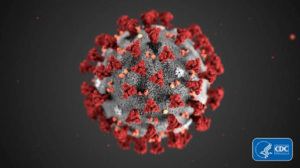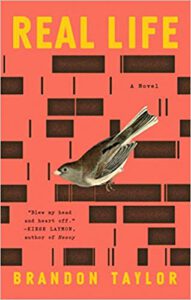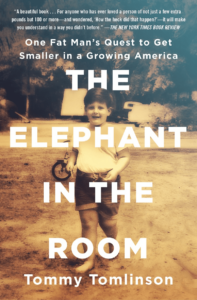This past week we’re continuing to read about the response to the coronavirus, and the efforts to develop a vaccine. But that intense focus hasn’t been to the exclusion of other interesting articles in our reading list this week. So here is what we’re reading.
Wash Your Hands
 More on the coronavirus — estimates are that China has now imposed travel restrictions on more than 10 percent of its population! The outbreak has sharpened our focus on the public health response, as well as the need for rapid research required to create an effective vaccine. In the meantime, we are all becoming a little more diligent about things like washing your hands. On that note, here’s an illustration of the most often missed areas when washing your hands.
More on the coronavirus — estimates are that China has now imposed travel restrictions on more than 10 percent of its population! The outbreak has sharpened our focus on the public health response, as well as the need for rapid research required to create an effective vaccine. In the meantime, we are all becoming a little more diligent about things like washing your hands. On that note, here’s an illustration of the most often missed areas when washing your hands.
Glass Houses
 We often believe that working in the sciences is somehow more progressive than working in other fields. Still, Brandon Taylor’s book Real Life offers a different point of view. As a gay black man, he often felt isolated, silenced and marginalized. “Science was the constant humiliation of wondering if I had justified my presence,” Tayor writes in this Buzzfeed piece. He wondered if he had “made it harder for the next black person to get admitted.” Ultimately it’s what drove him from the field.
We often believe that working in the sciences is somehow more progressive than working in other fields. Still, Brandon Taylor’s book Real Life offers a different point of view. As a gay black man, he often felt isolated, silenced and marginalized. “Science was the constant humiliation of wondering if I had justified my presence,” Tayor writes in this Buzzfeed piece. He wondered if he had “made it harder for the next black person to get admitted.” Ultimately it’s what drove him from the field.
The Food We Eat
We eat a lot of junk, and that may explain why we’re getting so fat. We’re not just consuming processed food loaded with sugar, salt, and fat, but what are called “ultra-processed foods.” These are “foods” are what the Guardian calls “concoctions of concoctions” that resemble food. According to this Guardian story, now more than half the calories consumed in the United States and the UK are made up of these ultra-processed foods. Makes us think that Michael Pollan’s diet advice, “Eat food, not too much, mostly plants.” And when he says “food” he means real food, not processed stuff.
Heavy
 It would all be so simple if we ate less and made better food choices, but it’s not so simple. There’s much more involved in what drives people to eat the way they do. We wish more people had read Tommy Tomlinson’s 2019 book, “The Elephant in the Room, One Fat Man’s Quest to Get Smaller in a Growing America.” A great writer and one-time finalist for a Pulitzer Prize, Tomlinson brings his story and a lot of humanity to the struggles of people trying to lose weight and improve their health. Helping people to make those changes requires a more profound understanding, or we’ll never deal with the looming obesity crisis. “What I want you to understand, more than anything else, is that telling a fat person to ‘eat less and exercise’ is like telling a boxer, “Don’t get hit,” Tomlinson writes. Understanding the emotional and psychological hurdles people often need to clear before taking the actions they already know they need to take to be healthy is essential. Tomlinson’s writing brings that home, just as he vividly describes his weight’s toll on his body. Read his book, now in paperback, or at least read the piece he wrote last year for the Atlantic.
It would all be so simple if we ate less and made better food choices, but it’s not so simple. There’s much more involved in what drives people to eat the way they do. We wish more people had read Tommy Tomlinson’s 2019 book, “The Elephant in the Room, One Fat Man’s Quest to Get Smaller in a Growing America.” A great writer and one-time finalist for a Pulitzer Prize, Tomlinson brings his story and a lot of humanity to the struggles of people trying to lose weight and improve their health. Helping people to make those changes requires a more profound understanding, or we’ll never deal with the looming obesity crisis. “What I want you to understand, more than anything else, is that telling a fat person to ‘eat less and exercise’ is like telling a boxer, “Don’t get hit,” Tomlinson writes. Understanding the emotional and psychological hurdles people often need to clear before taking the actions they already know they need to take to be healthy is essential. Tomlinson’s writing brings that home, just as he vividly describes his weight’s toll on his body. Read his book, now in paperback, or at least read the piece he wrote last year for the Atlantic.
Ghost in the Machine
More good stuff on Ghost DNA finding but no name for this ancient human cousin until we get the bones. Scientists found evidence of these ancient human cousins in the DNA of modern living humans in West Africa. What we are learning is that it wasn’t just Neanderthals, or Denisovans, or even Hobbits, that interbred with early modern humans. Our ancestors were also mixing with other as yet unidentified ancient human cousins.



